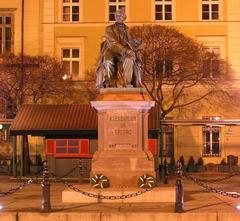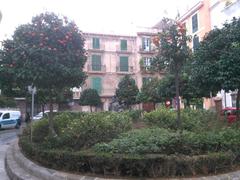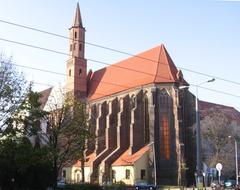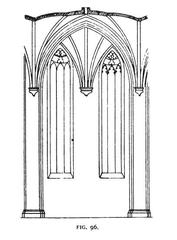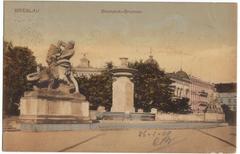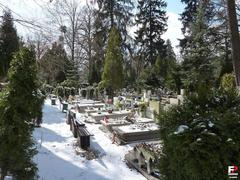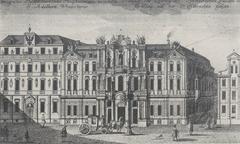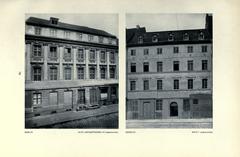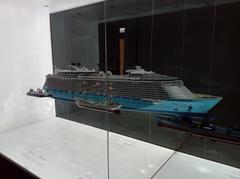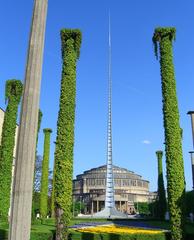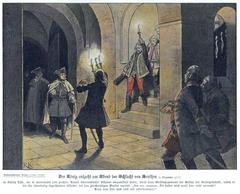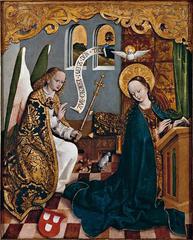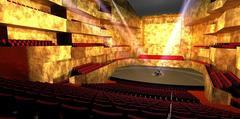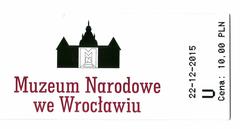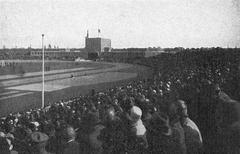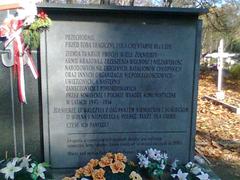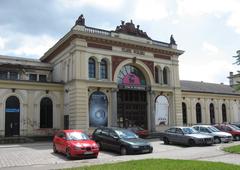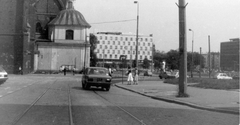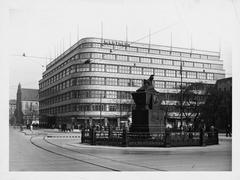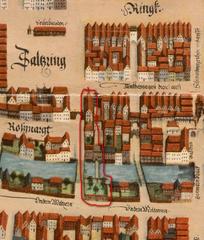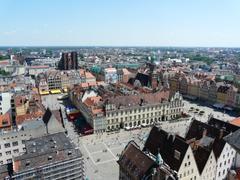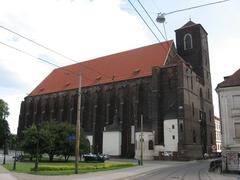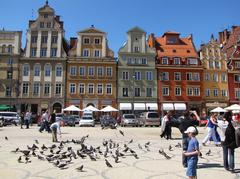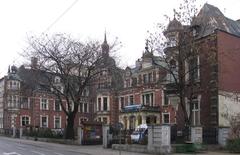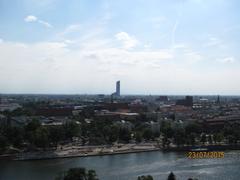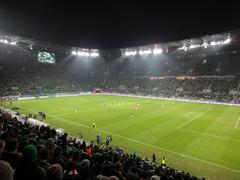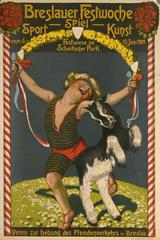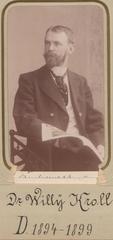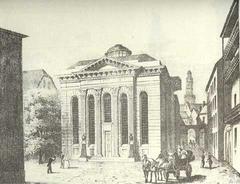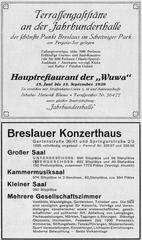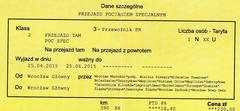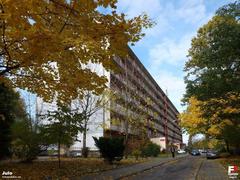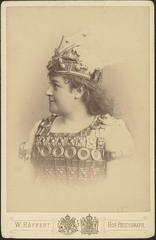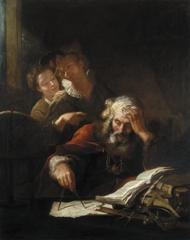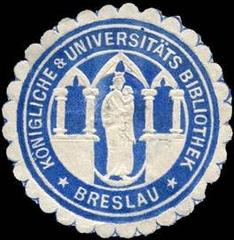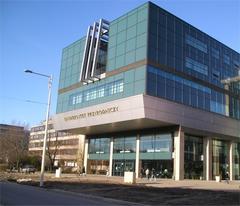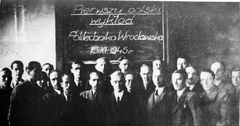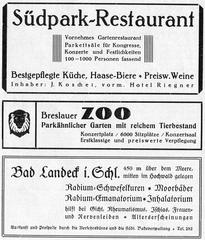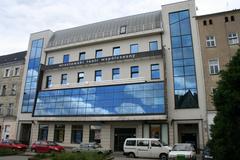
Monopol Hotel Wrocław: Visiting Hours, Tickets, and Historical Site Guide
Date: 03/07/2025
Introduction
Nestled in the vibrant heart of Wrocław, the Monopol Hotel is far more than a luxury accommodation—it is an enduring icon of the city’s historical, architectural, and cultural heritage. Since its establishment in 1892, the hotel has stood witness to Wrocław’s transformation, playing host to distinguished guests, landmark events, and significant episodes in European history. This comprehensive guide provides all the essential information for visitors—including the hotel’s origins, architectural highlights, visiting hours, ticketing, accessibility, and recommended nearby attractions—ensuring you experience the full richness of this remarkable site (Wroclaw Guide; Hotel Monopol - Michelin Guide; Nomads Travel Guide).
Table of Contents
- Introduction
- Origins and Early History
- Architectural Significance
- Historical Events and Famous Guests
- Wartime Survival and Restoration
- Preservation and Modernization
- Visiting Information: Hours, Tickets, Accessibility, and Tours
- Unique Features & Nearby Attractions
- Frequently Asked Questions (FAQ)
- Conclusion and Plan Your Visit
- References and Further Reading
Origins and Early History
The Monopol Hotel was constructed between 1891 and 1892, at a time when Wrocław was known as Breslau and part of the German Empire. Designed by Karl Grosser, the hotel was built to cater to the city’s growing status as a commercial and cultural center. The site—formerly the graveyard of St. Dorothy’s Church—was selected for its prime location at the junction of Świdnicka and Modrzejewskiej streets, adjacent to the Wrocław Opera House and near the Market Square (Wroclaw Guide; Nomads Travel Guide). The project was backed by influential Jewish financiers, and the original investment was a significant sum for the era.
From its opening, the Monopol Hotel was a symbol of luxury and modernity, featuring state-of-the-art amenities such as electric lighting and central heating—luxuries rare in hotels at the time.
Architectural Significance
Exterior Features
The Monopol Hotel is a stunning example of late 19th-century eclecticism, seamlessly blending Art Nouveau and Neo-Baroque elements. Its façade features:
- Ornate stonework and decorative reliefs depicting mythological figures and floral motifs
- Large arched windows, many framed by pilasters and crowned with keystones
- Curvilinear balconies with wrought-iron railings, typical of Art Nouveau
- A prominent copper-domed corner turret anchoring the intersection of two main streets
- Red ceramic roof tiles and dormer windows, characteristic of Wrocław’s historic architecture
Meticulous restoration efforts have preserved the building’s patina and original decorative elements (Les Boutique Hotels).
Interior Spaces and Design
Inside, the hotel’s grand lobby welcomes visitors with:
- Marble floors featuring intricate geometric patterns
- Stained glass skylights creating a warm, inviting atmosphere
- Original columns, pilasters with gilded capitals, and decorative plasterwork
Public corridors and staircases display preserved woodwork and iron balustrades, while the main staircase is a highlight for architecture enthusiasts. The 121 rooms and suites have been renovated to combine modern comfort with historic charm, retaining high ceilings, large windows, parquet flooring, and restored decorative moldings (Hotel Monopol - Michelin Guide).
Notable Architectural Highlights
- Historic Ballroom: Noted for its soaring ceilings, crystal chandeliers, gilded wall panels, and herringbone parquet flooring. It has hosted events since the early 1900s.
- Rooftop Terrace: Offers panoramic views of Wrocław’s Old Town, framed by original balustrades and decorative urns.
Historical Events and Famous Guests
The Monopol Hotel has played a prominent role in Wrocław’s social and political life. In 1937, a balcony was added above the entrance for Adolf Hitler’s visit; he delivered a speech there in 1938. After WWII, Polish tenor Jan Kiepura sang from the same balcony, symbolizing the city’s transformation (Kocham Wrocław).
The hotel has also hosted luminaries such as Pablo Picasso—who created his famous “Dove of Peace” during a stay—Marlene Dietrich, the playwright Gerhart Hauptmann, and Polish cultural figures like Zbigniew Cybulski and Jerzy Grotowski (Wikipedia; Nomads Travel Guide). Its elegant interiors have served as settings for classic Polish films, including Andrzej Wajda’s “Ashes and Diamonds.”
Wartime Survival and Restoration
Remarkably, the Monopol Hotel survived WWII with minimal damage, unlike much of central Wrocław. After the war, now under Polish administration, the hotel quickly regained its reputation as a cultural hub. It hosted the 1948 World Congress of Intellectuals, welcoming guests such as Picasso and Nobel laureate Mikhail Sholokhov (Wikipedia). In 1984, the building was entered into Wrocław’s register of monuments, cementing its status as a protected landmark.
Preservation and Modernization
After a period of neglect during the communist era, the Monopol underwent extensive restoration in the early 21st century, completed in 2009. The restoration preserved original elements—such as marble flooring, stained glass, and woodwork—while modernizing the hotel with amenities like a spa, wellness center, and conference facilities. Today, the Monopol is recognized as one of Poland’s most luxurious hotels, blending historical integrity with contemporary comfort (Les Boutique Hotels; Hotel.com.pl).
Visiting Information: Hours, Tickets, Accessibility, and Tours
- Visiting Hours: Public areas (lobby, restaurants, rooftop terrace) are open daily from 12:00 PM to 11:00 PM. Reception for hotel guests operates 24/7.
- Tickets & Tours: Entry to public spaces is free. Guided tours of the historic ballroom or architectural highlights may be available by prior arrangement and may require a ticket—contact the front desk or check the official website for availability.
- Accommodation: Book rooms directly via the official website or trusted travel platforms.
- Accessibility: The hotel features ramps, elevators, and adapted rooms for guests with disabilities. Contact the hotel in advance for specific needs.
- Photography: Allowed in public spaces; special permission required for event spaces.
- Guided Tours: Walking tours of Wrocław’s Old Town often include the Monopol—book through local tour operators or online (GPSmyCity).
Unique Features & Nearby Attractions
- Rooftop Bar: Offers panoramic city views, ideal for evening relaxation or photography.
- Restaurants: Two acclaimed venues serve Polish and Mediterranean cuisine.
- Spa & Wellness: Modern facilities open to guests and day visitors.
- Proximity to Landmarks: Steps from Market Square (Rynek), Wrocław Opera House, and Panorama of the Battle of Racławice (In Your Pocket).
- Cultural Events: Regular art exhibitions, concerts, and literary gatherings.
Frequently Asked Questions (FAQ)
Q: What are the Monopol Hotel visiting hours?
A: Public areas are open from 12:00 PM to 11:00 PM; hotel reception is open 24/7.
Q: Is there an entrance fee?
A: General access to public spaces is free. Guided tours may require a ticket.
Q: Can non-guests dine or visit the rooftop terrace?
A: Yes, both restaurants and the rooftop bar are open to visitors.
Q: Is the hotel accessible for visitors with disabilities?
A: Yes, with ramps, elevators, and adapted rooms.
Q: Are guided tours available?
A: Yes, by prior arrangement or as part of city walking tours.
Q: Is the hotel suitable for families?
A: Yes, family-friendly accommodations and amenities are available.
Plan Your Visit
To make the most of your visit, check the hotel’s website for current hours, special events, and guided tour availability. The Monopol is ideally located for exploring Wrocław’s other historical and cultural sites—consider combining your visit with a tour of the Opera House, Market Square, or the nearby Centennial Hall (Wroclaw Guide).
For personalized audio guides and up-to-date visitor tips, download the Audiala app. Follow us on social media for the latest news, events, and travel inspiration.
References and Further Reading
- Wroclaw Guide
- Hotel Monopol - Michelin Guide
- Nomads Travel Guide
- Kocham Wrocław
- Wikipedia
- Les Boutique Hotels
- Hotel.com.pl
- In Your Pocket
- GPSmyCity








